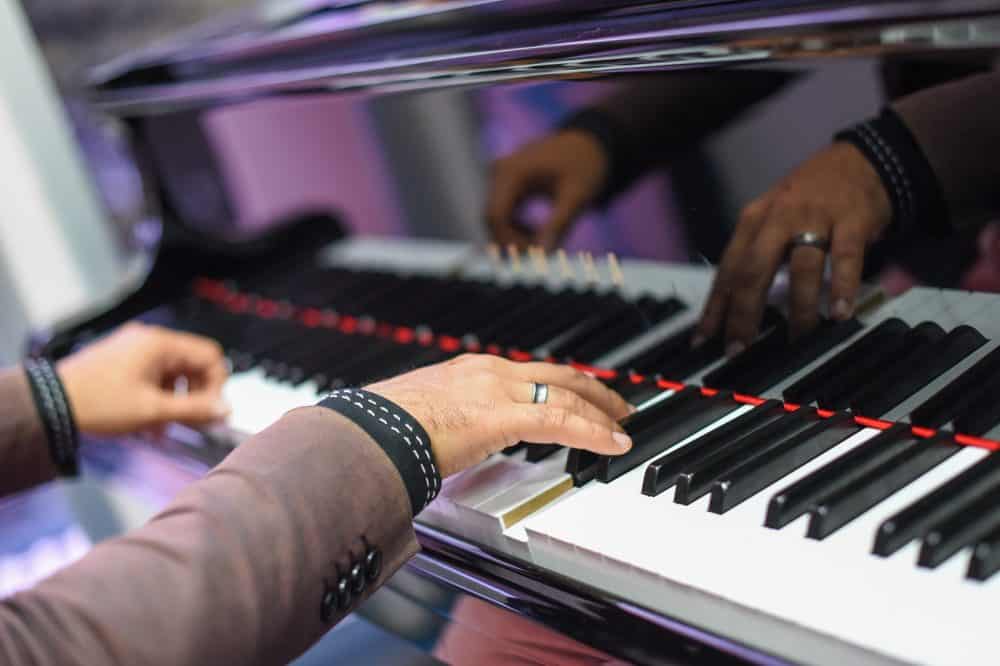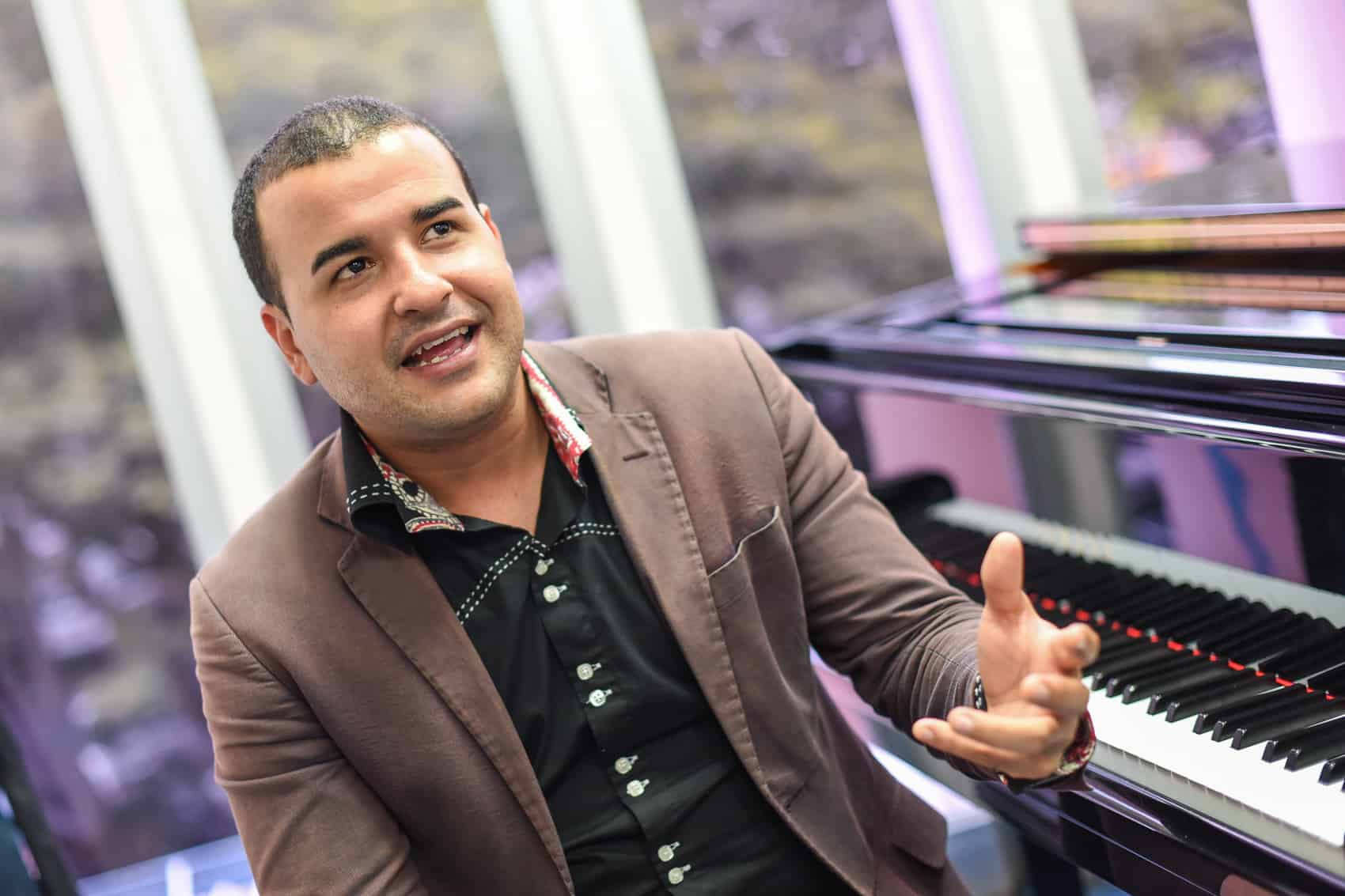There are few times in life when you are strongly affected by a musician. Cuban pianist Leonardo Gell has the ability to transport you to another dimension through the majestic sound of his music. Born in Havana, he has dedicated his life to the piano from a young age, studying at the Amadeo Roldán Conservatory, Manuel Saumell Conservatory and the University of Arts in Cuba. At only 29 years old, he has won more than 15 prizes in Cuba, Costa Rica, Spain, and North Korea, and recorded more than 13 albums, DVDs, and videos. He is living in Costa Rica while working as a professor and performer at the University of Costa Rica (UCR).
The Tico Times sat down with Gell in his UCR classroom to talk about his career and travels, the stark differences between musicians’ lives in Cuba and Costa Rica, and his view of success. Excerpts follow.
How did you become a pianist?
I come from a very humble family in which I’m the only musician. I have an older brother who’s a photographer, so I’m not the only artist. I ended up in music by chance: we lived in a tough neighborhood, so my mother decided to take me away from that environment. The Russian music school was in a very good neighborhood and my mother was determined to enroll me.
In Cuba it’s very difficult to get into a music conservatory. After passing various music exams, I had to choose between piano and violin; I chose the piano, and while the first years were very difficult, I had the great fortune of having great professors during my entire university career. I can boast that I studied with some of the best piano teachers in Cuba.
Preparing for national and international competitions was an important part of my development as well, and I treasure bitter and sweet experiences from my competition years. No experience is bad. From those negative experiences you learn more than from the pleasant ones. What do I mean by this? Music is like dance and theater; they’re “time arts.” With a painting, for example, the painter does not show his or her work until he or she is satisfied with it. Musicians, dancers and actors can take a whole year to prepare, and unfortunately, we depend on the 20 minute [result of that preparation] for people to value our work. Hence, we have great and awful days.
Later on, I realized that I did not want to keep on dedicating my life only to competitions, both rather to collaborate with living composers and other musicians, record, and perform with orchestras. It was then when I understood that I would either keep on preparing myself for competitions, or expand my spectrum with these other experiences.
How did you end up in Costa Rica?
It’s very peculiar. The first time I came to Costa Rica I felt very connected with the country. I was 16 years old. Now that I work at the UCR, and I have coworkers who were professors when I first visited. From that moment I remember María Clara Vargas Cullel, the current dean of the Fine Arts School, and Gerardo Duarte, the Musical Arts Director, as well as Cuban piano professors Sara and Gertrudis Feterman, who came to Costa Rica in 1970. They were people with whom I developed a close relationship. Afterwards, I was interested in getting to know Costa Rican music. In Cuba there was no knowledge on what was happening in Costa Rica. From 2003 and onward, I worked on the organization of the Contemporary Music Festival in Havana, and I began introducing Costa Rican music into the festival and organizing independent recitals of Costa Rican music. I invited several [Costa Rican] embassy officials in 2009, when the diplomatic relations between Costa Rica and Cuba were reestablished. In 2011, Costa Rica’s consul asked me to collaborate with the organization of Costa Rica’s first cultural activity in Cuba, and I was invited to additional events in Costa Rica.
In 2012, I learned that I had relatives who had emigrated from the United States to Costa Rica. I met one of my uncles here: he left Cuba 35 years ago and never went back. My mom came to Costa Rica with me and reunited with her brother after 31 years of not seeing each other. For her, as for me, Costa Rica was the first foreign country she ever visited. I’ve been living here for three years now and I feel that Costa Rica is not only my second country, but also my home. When I travel, even if it’s to Cuba, I feel I have to return home, and my home is here in Costa Rica.
How are the Costa Rican and Cuban cultural environments different?
Costa Rica has a very rich musical program. However, as in countries all over the world, there is no concrete concept of culture subsidized by the state. Cuba has the so-called national music centers; here there’s only one. The Cuban government subsidizes all the symphony orchestras, professional choruses, chamber orchestras, and soloists in the country. There’s a process of auditions, and your professional quality is evaluated, but you receive a monthly salary to practice what you studied for. If I have an invitation to perform in Spain on behalf of the music center I belong to, the government provides me with the passport and the visa to travel. The government does what an artist’s agent or producer is supposed to do.
Here, if you don’t apply to perform on the established dates by the National Theater, you have to pay a certain amount of money to perform. Besides that, the National Theater is paid with our taxes and a ticket is around ₡17,000 colones [approximately $34]. In Cuba, the access to theaters costs from 5 to 10 Cuban pesos. No ticket will cost you more than 10 or 20 pesos, and 20 pesos are not even one dollar! You have easy access to culture.
I think that in Costa Rica the cultural system should be modified. Here, you can’t live off performing as a musician. If you don’t work at a university or as a teacher, you can’t have a music career. That’s the reality. I’ve had difficulties changing that idea in my mind. In Cuba I was a performer who taught. My priority was not to teach. Here, I’m a teacher who performs. My essence is to be a performer. The ideal would be that one could make a living from performing and preparing your own concerts.

Who is your favorite composer?
From the universal music, my favorites are Mozart, Beethoven and Chopin. However, I’ve dedicated most of my time in the past 10 years to contemporary music. To me, it’s very important to know your own limitations and potential. It’s important to play the music of the current composers. I have to introduce myself into what is going on, and try to [understand] what the creators of my time are doing. I’ve participated in festivals in which I organize my own repertoire, and oftentimes the composer has either written the piece for me, or I’m the second or third pianist who will play it.
What is the key to success?
I don’t believe in successful people because we are all humans and no one is perfect. No one has a perfect life. When you have something that is not that successful or you have problems, you should be able to channel what you call “success” through other means. I don’t believe in success. I believe in your own effort, sacrifice, in setting aside certain things in order to obtain others, in establishing priorities. I believe, over anything else, in dedication, in love, and the effort you invest. I do believe in that: in people who strive in life for a particular reason.
Read other “Weekend Arts Spotlight” interviews here.
Our “Weekend Arts Spotlight” presents Sunday interviews with artists who are from, working in, or inspired by Costa Rica, ranging from writers and actors to dancers and musicians. Do you know of an artist we should consider, whether a long-time favorite or an up-and-comer? Email us at kstanley@ticotimes.net.






